How Frozen’s Treatment of True Love Transcends our Expectations
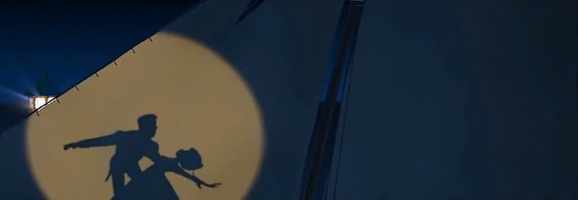
Like any fairy tale, true love is prominent in Disney’s Frozen. It is not, however, taken for granted. True love has come to suggest that there is one man out there who is destined to rescue and fall in love with a particular maiden, who is bound to love him back. One man who can triumph over evil and provide her with a happy ending. Is romance like this a problem? Only if the audience becomes more interested in drama, attraction, and duets than mutual selflessness, forgiveness, and trust.
In Frozen, romance takes a back seat but true love prevails in the hearts of two sisters, Elsa and Anna. Queen Elsa of Arendelle has kept a secret from the whole kingdom, including her sister. They once were inseparable, but now Elsa is too afraid of hurting Anna to spend time with her. When it becomes clear that Elsa cannot control the ice powers that she has kept concealed for so long, she retreats into the mountains, thinking she can protect everyone–especially Anna– by staying away. Anna refuses to give up on bringing Elsa home, and goes to find her sister while Hans, Frozen‘s version of Prince Charming, watches over the kingdom. On her adventure, Anna meets Olaf the snowman and Kristoff the “ice guy”, and they help the sisters reunite. Focusing on the restoration of a sibling relationship is not to dismiss the value of romance or to urge that men cannot be trusted to save the day. It simply reminds viewers that true love is a strong, unconditional bond. When love is true it is just as strong a force between friends, siblings, and sweet hearts.
While creating the opportunity for true love to be expressed through a sisterly bond, Disney also takes the opportunity to contrast true love with its opposite. This is where Frozen’s greatest spoiler comes in (and if you don’t know what it is then you should not continue reading this article). That spoiler reveals that even as love shines in Frozen’s spotlight, the relentless power pulling Anna to her sister, something less sincere lurks in plain sight. Hans, Prince of the Southern Isles and recent fiancé to Anna, turns out to have been the ambitious villain all along. His reveal occurs without enough foreshadowing to take away from its shock value, and is in fact slyly covered up to provoke the desired reaction.
Anticipating and manipulating audience expectations
Hans’ reveal as the primary villain was one well organized surprise. Even during the movie’s promotion, when the plot and characters underwent scrutiny from Disney enthusiasts, Hans came out unscathed. He was overlooked quite simply as the dashing prince, and therefore natural suitor.
Beyond the Trailer in late August 2013 expressed the typical reaction that came with learning there would be two male leads. A link to the full video can be found here:
.
This quote encapsulates the intense attention that speculative Disney fans paid to the romantic side of Frozen: “Now, of course, it wouldn’t be a Disney fairytale movie without romance, and we have two eligible bachelors. Question is are we talking a love triangle for Anna or a beau for each sister?” Beginning with the wrong question inevitably leads to waiting for the wrong answer. The audience follows Anna’s adventure with Kristoff, all the while baffled by which man she will choose in the end. They might even pity Hans because the “love experts” believe Anna and Kristoff are romantically compatible. They do not ask, “Which one will leave her to die?”
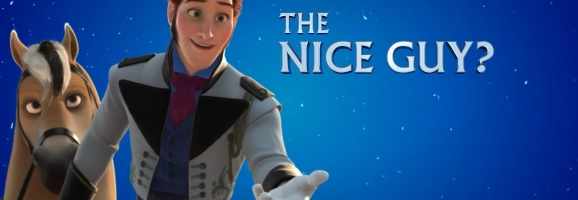
The trailer, of course, misleads viewers by purposefully constructing their first impressions. Not only was there no allusion to Hans acting in a villainous way, but he was even popularized in advertisements as the exact opposite: “the nice guy.” On posters that feature a smiling Kristoff, Anna, Olaf, and Elsa, Hans stands just as comfortably among them, like an ally. When the movie hit the big screen, everyone eagerly awaited the showdown between Hans and Kristoff that would determine which stud got the girl, falling as Anna does for his charm.
In the end we are just as clueless as Anna so that the message hits home—that this betrayal not only could happen to us, but it just DID. It does what it can to force ignorance on us, but such is necessary. It plays off of our expectations to tell us we don’t know everything. For one thing, we cannot assume that every Hans out there is trustworthy just because he acts like a gentleman. For another, true love comes in many forms.
Pulling off the scheme
When Hans boasts his evil plan to Anna, a good portion of the audience is scratching their heads trying to see what they missed. This is the handsome, well-spoken, Prince Hans we are talking about, after all. He seems to believe in love at first sight, relates to how Anna felt being ignored growing up, calms Arendelle’s citizens while Anna is away, and even reaches out to Elsa’s humanity when she is using her powers violently. It only takes a couple of charismatic scenes for the audience to trust him the way Anna does.
Where was the foreshadowing that this charming young man is really a monster? Nothing exactly screams “selfish traitor!” about his character for the better half of the movie. Sure, he has told Anna that “with you I think I’ve found my place” and mentioned that he is the youngest of 13 sons, but while these fleeting words provide slight insight into his actual need to marry well, they are hardly condemning details. Then there’s the jarring transition between Anna singing “For the first time in forever, nothing’s in my way [of finding true love!]” and her ironically knocking into him. But even this is taken as an example of her klutziness and the cue for the awkward/adorable exchange between the two of them.
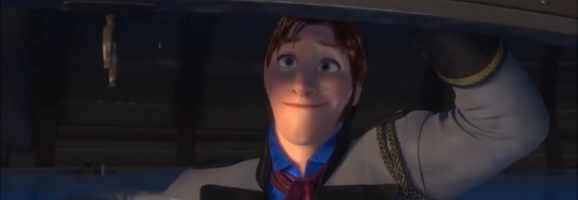
When their first moment together is over, something strange happens. The scene actively feeds the audience the wrong information to throw them off the scent. Hans smiles dreamily beneath the boat after she is gone, and because he could not possibly profit from faking a smile when no one is around for him to deceive, he seems genuinely taken by Anna’s modesty. That means he is either having bubbly thoughts about ruling Arendelle and/or blatantly deceiving us.
So, Disney succeeds in surprising the masses with its twist ending, but why go to such lengths? Clearly, the story either deceives the viewer intentionally or sloppily constructs Hans’ character. I believe it is the former. While children may innocently fall for Hans’ virtue, even if there had been warning signs, adults seeing the film will not be so easily charmed. Therefore, Frozen must hide Hans’ true motivations in order to temporarily blind adults, restore their ignorant belief in the fairy tale archetypical prince, and blatantly deceive them into conforming to Anna’s irrational perspective. Then we end up feeling as betrayed as Anna, and are more likely to listen to Olaf’s definition of true love. The second time we watch Frozen we are prepared for Hans’ switch in personality. We can never again experience the shock. Thankfully, we can focus on an even more important revelation, and that is how Olaf’s definition of love applies to Anna and Elsa’s relationship.
Planting a scapegoat
One of the first questions Disney fans had when Frozen was announced was who the villain would be. For a while, some suspected Elsa, following in the tradition of the original Snow Queen story. This theory was soon dispelled, followed by the belief that there would be no antagonist at all. Forces like “insecurity” and “ignorance” would instead create enough conflict for the sisters to resolve. Disney princess movies, however, typically have a physical antagonist. That is a trusted pattern. Where is the sorceress that cursed Elsa, the evil step mother, the witch doctor, or the evil advisor typical of Disney films? The audience expects a typical antagonist, and if Frozen doesn’t provide it with one, Hans might arouse suspicion. That means someone else has to take the fall, and the Duke of Weselton performs the role of scapegoat quite convincingly.
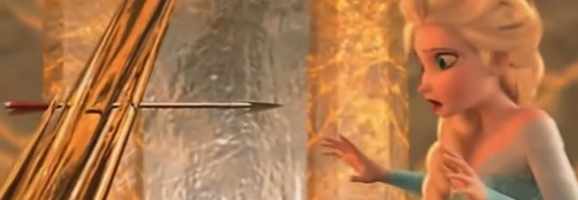
The duke and his henchmen are given special focus when the gates of Arendelle open at long last, falsely designating them as the primary villains. The duke catches himself thinking aloud that he desires to exploit Arendelle’s riches and the audience takes the bait, thinking “We need to keep an eye on this guy.” Hans even rises in the audience’s favor because the duke disapproves of his charitable actions. If we do not like the duke because he is greedy, and the duke does not like Hans, then we are encouraged to defend and support Hans’ goodwill. Whether squabbling over trade items, slandering Elsa’s name, or plotting her assassination, the duke and his men do wonders to absorb viewers’ attention and hatred while Hans is on screen.
The consequence of ignorant expectations
To trust someone as fully as Anna trusts Hans does not ultimately show her open mindedness and capacity to love, but the height of her ignorance and neglect. In order to establish the danger of ignorant assumptions/expectations, without revealing Hans as the villain, Olaf the snowman experiences a similar arc of realization as Anna. He is new to the world and has as much optimism as Anna. We recognize him as a symbol of innocence and purity, given life by one woman’s, wonder, love, inner child, and new sense of freedom. It is impossible to keep the audience in the dark about what will happen if Olaf helps bring back summer because it is obvious.
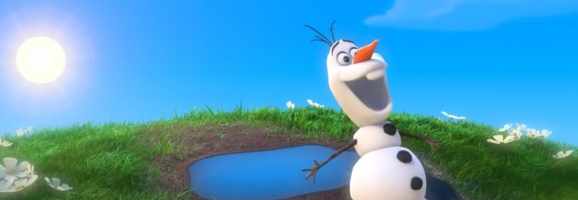
Just as Olaf is in love with the idea of summer without knowing anything about it, so too is Anna in love with the idea of love. Unlike the obvious, even laughable, question of the effect that heat will have on ice, the effect of Hans on Anna comes as a dreadful surprise but, in the end, both have potentially morbid consequences. Thus, the audience is exposed to the idea that foolish desire can lead a character to bring doom upon himself.
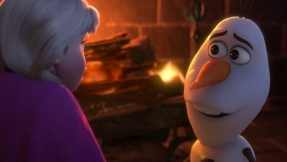
Anna and Olaf face the consequences of their ignorance together. Once Hans betrays Anna, she no longer knows how to define love. Earlier, she called it an open door, but that was when she was certain that Hans’ attention and acceptance of her was enough to constitute true love. It was everything she felt she lacked from her once strong relationship with Elsa. In an effort to warm Anna by tending the fire, Olaf realizes what happens “when solid water gets hot” and it isn’t pleasant. Meanwhile, Anna still slowly freezes, dying because she was unable to tell the difference between a manipulative stranger and true love. Olaf is happy to finally set the record straight. “Love is…putting someone else’s needs before yours.” And he should know, because he is not only willing to melt for her, but to find a way for them to both survive.
Love experts
So Olaf impresses us with his stunningly succinct definition of love, but what about the trolls? Are they not meant to be certified in all things related to true love? Maybe their silliness is what keeps us from entirely believing that Kristoff is Anna’s true love. Also, their song “Fixer Upper” essentially takes the place of a duet between the two of them. As if that isn’t bad enough for fans of their relationship, the critics can only see the song as hypocritical. Anna and Kristoff have only known each other for one day and the trolls are already thrusting marriage in their faces? That apparent contradiction makes us overlook the fact that Kristoff has been away for some time, that the trolls have a sixth sense for compatibility, and that therefore they assume he is bringing his girlfriend home to meet the family. Lines like “I don’t see no ring” and “Get the fiancé out of the way” have a tendency to make us more uncomfortable than relieved. Anna made a promise to Hans, and it is hard to approve of her cheating on him even if she has met her real true love.
It is easy to focus too strongly on how the song forces Anna and Kristoff together, but “Fixer Upper” does not limit itself to speaking about romance. It tackles the concept of true love more broadly, mirroring the message of the film as a whole by touching on the power of filial love. So, even though Anna and Kristoff are being pushed together, the song remains very linked to Elsa and Anna’s mending relationship, especially when the trolls sing “Father—sister— brother— we need each other to raise us up and round us out.” And nothing describes Elsa’s perpetual predicament, and barrier she has raised between herself and Anna, as this line: “People make bad choices when they’re mad, or scared, or stressed. Throw a little love their way! And you’ll bring out their best.” The trolls are called love experts for a reason. While they may get carried away, pairing them together with seemingly biased romantic advice, they also give downright good advice about the power of love.
True love endures
Unlike the way we are tricked by knowing as little about Hans as Anna does, the transparent beginning of Frozen privileges us with the true account of the sisters’ past. The trolls modify Anna’s memory of Elsa’s powers in order to protect her, but they never would have wanted the two to be as estranged as they become. Being in the know gives us a wiser perspective and greater empathy for Elsa. Had we been just as confused as Anna then we could not have known that Elsa’s fear of hurting her sister with her ice powers is to blame for her shutting Anna out. Ignoring Anna for so long has caused a rift to form between them, but the viewers understand and forgive Elsa’s decision with the knowledge that it was not made out of spite.
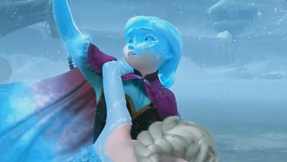
As the neutral party, observing how these sisters still love each other, the answer to their problem seems obvious: all they have to do is confide in each other. Elsa acts under the misconception that she must bear the burden of her powers alone. Anna feels confused and rejected by her sister’s isolation, and nevertheless would do anything to help Elsa if only she knew how. Sometimes Anna isn’t sure what hurts more, that her sister has isolated herself in avoiding her, or that her sister has isolated her as well by keeping the gates closed. When Elsa accidentally releases her powers in public, revealing the reason behind her reclusive behavior, Anna is even more determined to let her sister know she is not alone. Fully believing in her sister’s goodness, Anna treks through the snow after her, confident that a heart to heart is all it will take to finally invite their relationship and the kingdom to thaw.
As much as Anna believes in Elsa, Elsa holds herself back, certain fear is stronger than love. When she resists Anna’s encouragement, Anna just continues with, “Sure you can. I know you can! Cause for the first time in forever, you don’t have to be afraid. We can work this out together.” Not only does Anna express her belief in Elsa even when the queen can’t believe in herself, she holds the resilient belief that their relationship can return to normal just like the weather. The revelation that love can thaw a frozen heart almost arrives too late for Elsa, but Anna’s limitless strength of the heart and personal sacrifice helps her to understand and accept the control she has over her power.
Other princes who break fairy tale patterns
Although this isn’t the first fairytale in which the main female protagonist does not end up with the prince, it is likely the most surprising. Enchanted (Disney), Shrek (DreamWorks), and Happily Never After (Vanguard Animation) are key examples that defy fairy tale convention. Interestingly, Enchanted excuses the change it makes because its characters leave the fantasy world in which true love is only a kiss and a prince away. Shrek and Happily N’Ever After, however, are 3D animated comedies not made by Disney, and they seek originality in the fairy tale territory by including classical references and then turning the audience’s assumptions upside down. The main difference between these three fairy tale films and Frozen, however, is that Frozen is supposed to be the kind of material these films parody in their deviance from our assumptions. Furthermore, they are more concerned about which man truly belongs with the princess than considering the many manifestations of love. That is how Frozen nails its surprise, even if one is familiar with the exceptions.
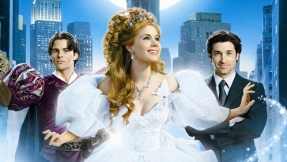
In Enchanted, much of the movie makes comedic allusions to iconic fairytale imagery. For instance, Princess Giselle sings while vermin from the streets of New York help her tidy up. After their experience in the real world, Giselle and her Prince Edward drift apart. Even though Edward is falling out of love with Giselle, however, he still tries to revive her at the end with true love’s kiss.
Hans has the same opportunity to help Anna. The problem with their potential kiss is not that Hans is not romantically in love with Anna; the problem is that Hans is in love with power and can gain it if he gives up on her. He cruelly leans in for the life-saving kiss, pauses, makes a snide remark, and leaves Anna to her fate. He is not being practical when he rejects Anna, simply refusing to kiss her because he knows it will not work. Hans wants Anna to die, and the audience does not expect that level of cruelty, that level of morbidity, in a children’s movie.
In Shrek 2, we meet another Prince Charming who luxuriates in the role of the villain. There is one key difference between them, however, and that is that Prince Charming does not take the steps as Hans does to insure his true narcissism is masked. Someone named “Charming” cannot help but call attention to himself and believe in certain entitlements. His vanity is apparent from the very beginning, cuing the audience to be wary of him as a villain who will do anything to steal Princess Fiona from Shrek. As a fairy tale parody, Shrek gets away with breaking stereotypes of the genre— the ogre saves the princess, prince charming is the antagonist, true love’s kiss makes her an ogre forever, and a dragon falls in love with a donkey. Unlike Shrek, Frozen does not have the same comedic tone that makes us anticipate absurdity. Which raises the question— is it absurd for a fairy tale prince to be evil? Not anymore.
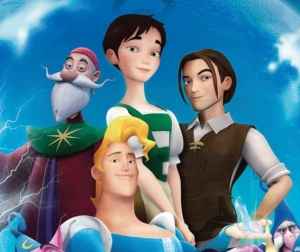
Then there’s Happily N’Ever After, a movie that by its title will either be a fun parody or a downright tragedy. Fortunately for its characters it is the former. Happily N’Ever After’s (Cinder) Ella has high hopes of catching the Prince’s eye at the ball, but ultimately finds a deeper connection with her friend Rick. This is similar to how Anna looks forward to meeting “the one” after the gates open, but then gets to know and trust Kristoff. Ella’s prince is not a villain though. He is the comic relief, in all of his incompetent glory. Rick goes through the real hardship to help Ella, while the Prince makes an admirable, over-the-top, attempt to do everything by-the-book. It is easier to eliminate the prince as a love interest when the audience sees just how lame he really is, however well meaning. So, even though Anna has shared more experiences with Kristoff, the audience does not immediately write off the confident, capable, and seemingly warmhearted, Hans as her true love.
All of these examples show why, despite there being earlier examples of princes who do not find true love with their princess, Frozen can make us gasp. The consequences of Hans’ divergence from the fairy tale conventions are serious. Comedies have two advantages when it comes to toying with our assumptions. On the one hand they can surprise us and coax a laugh from us through irony. On the other, they can make wild role reversals while still managing to keep the story from turning dark. It is a fairy tale, after all! But then we watch Frozen, completely unprepared for Hans to say, “Oh Anna. If only there was someone out there who loved you.” Nothing compares to Hans’ monologue after he has masqueraded for so long as a hero. In another movie he would have followed up with, “just kidding. You should have seen the look on your face, Anna!” But instead, he douses her only sources of heat, and locks her in.
By surprising us with Hans as the villain and not even having Kristoff be the one to ultimately save Anna, Disney transcends our expectations. Frozen maintains the theme of true love, vital to the fairy tale structure, but revisits it in a fresh way that reminds us that true love does not have to be romantic. Love can be something as simple as lending your strength to someone when they can’t find strength on their own. Frozen begins with the semblance of a fairy tale with a love triangle, when really it is Elsa and Anna whose love for each other has the greatest development and impact. Once Frozen has brought into question the legitimacy of our expectations, crossed over into darker themes and tampered with trusted patterns, it demonstrates to us all what true love really is. This isn’t about whether or not Kristoff and Anna are getting married now that they’ve shared a tender kiss and received the trolls’ approval. Frozen is about remembering what it means for love to be the most powerful magic. The most powerful medicine for the heart.
What do you think? Leave a comment.
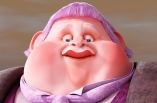
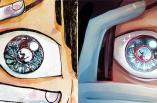
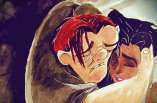

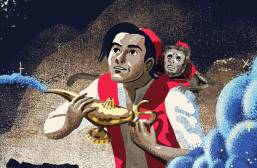
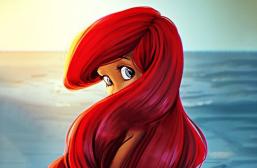
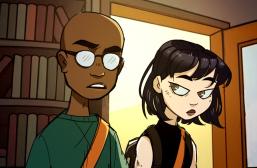
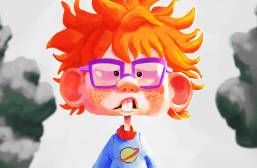

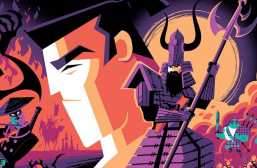
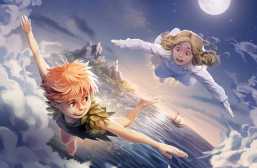
Great article! Disney seems to be showing a progression from the narrower definition of love circa Cinderella and Snow White to incorporate familial love as “True Love”. This is slightly off topic but the recently released Maleficent also offers a different take on the topic. It’s nice to see a refreshing change on the discourse provided and changing the perspective for younger generations.
For the First Time in Forever, Disney doesn’t end a movie with a romantic love ending, and I’m talking about Disney Princess animated movies.
I love the fact that they’re finally bringing in the fact that girls don’t need handsome boys for themselves to be saved. It’s happening in frozen, and it also happened in Malificent. It’s awesome!
Damn Disney it only took you decades to change your perception of “True Love”….
Now that I think about it, I don’t think Elsa was the one who did the so called “act of true love”. I think it was Anna herself who did the deed. She threw herself in front of Hans’ sword to stop him from killing her sister. If that’s not an act of true love I don’t know what is. Elsa is a great character but this just made me appreciate Anna’s character a lot more and it makes the movie a lot better for me.
Just out of curiosity, does anyone else think Hans was COMPLETELY JUSTIFIED in trying to kill Elsa? As far as he knew the choice was simple, the life of a selfish, destructive monarch or the lives of a large proportion of the population. It shouldn’t even be a question. It’s not even like Elsa can claim that she tried to stop the winter. She was asked to return, but she preferred living in her ice-palace to repairing the damage she caused to her own kingdom. I mean she’s arguably the WORST ruler in Disney history, including ones that were supposed to be evil.
I never thought of that way, but now that you mention…Whoa, its kinda true. Mind blown.
I love this movie
I really want to see frozen two if there is one
This idea of true love is one we don’t see all that often, and should be shown more often. It’s a more common kind of love, but it’s so common that we end up being blind to it. It’s even more important than romantic love because, without familial love, odds are you won’t become an emotionally whole person and your psyche will suffer, like Elsa and Anna do when they are painfully separated for so many years.
In this current age where people are increasingly isolated socially with all our electronic gadgets, and with many of us not having the best of relationships with our families, the message of this film is now more important than ever.
I absolutely loved the way Frozen challenged our expectations and I am so happy someone wrote an article about it. I’m glad you touched on the “fixer Upper” song as the song always struck me as hypocritical. However, your views have me second-guessing this in the best way possible. Great work =]
Nice content
You’ve made me second guess my few problems with Frozen. I myself didn’t like Olaf until now and I never thought much of Fixer upper until you dealt with it. I really like this article and I am glad someone published something of its type. Frozen truly was a nice piece of work.
You hit the main point of the movie’s purpose to show the importance of love that exists within strong family bonds, and the bond of sisterhood. This was a refreshing twist for Disney, instead of the traditional take of love just being between a man and woman, a girl and “Prince Charming”.
Interesting article about how Frozen challenges our expectations of Disney’s archetypes about love. Nice comparisons with other movies too. I recently saw Enchanted all the way through and I like the Shrek movies. Thanks for your insight!
i really want a Disney movie about true friendship love….like between two best friends….Although Wreck-it-Ralph was pretty close to that
We all watched the Frozen and we know what happened but does that mean we should move on all the time. This movie is awesome and I watched 5 times already cus its great
Finally a good disney movie/musical that teaches people you dont need a boy or girl to fall in true love
Well i guess we should also change our myths, folk lore, fairy tales & history cause they are not “realistic”, teach kids bad lessons & apparently someone follows it.
Saying that Disney teaches bad lessons to kids is same as saying that video games makes you a killer.
“Welcome to reality” is disney’s motto from now on
I loved the film, but can there every NOT be a happy ending?! She should have stayed frozen, and the screen should have gone black. THE END! 😀
Jk, but seriously, these happy ending all the time are sending the wrong message to kids.
It is a movie which tells the importance of relationship. So it was pretty AWESOME!
I love this movie mostly because it takes place in Norway and I am a quarter Norwegian! ^.^
powerful and sweet
loved this movie.
Maleficent explored non-romantic true love as well in an interesting way
I saw this movie in Putlocker. It ws amazing. Even at the midst of all these heart touching scenes,i felt like laughing on seeing the Duke of Weselton and others standing on top like audience and looking at them as if seeing a movie…!
Great article that highlights why Frozen was so good and appealed to both adults and children. The way it handled and portrayed what “love” means, was really refreshing and compelling to watch. It’s a welcome break from the princess romances of old, so much more realistic & meaningful.
I liked that with Frozen, Disney finally decided to be less sexist that it has with its past films.
Good article! I like your analysis, which is similar to what my daughter and I came up with. We feel that Frozen is one of the first feminist princess movies.
I love this movie. And your article, was a fantastic analysis! Great job.
Hans is a necessary lesson for young girls, I think. Princes aren’t always princes. Princes are assholes too.
Frozen is definitely Disney’s most avant-garde project and I like where their going with it.
This was such a great analysis. When I first saw Frozen, I had also expected it to be the typical Disney fairy tale where the princess falls for the prince and they live happily ever after. I’m not a huge Disney fan for that very reason. That’s why Hans betraying Anna took me off guard, in the best sort of way. It was really unexpected because as you say this film was not a comedy/parody trying to upend fairy tale expectations, but the very thing that is often parodied. I was so moved by the fact that the Disney trope of “the act of true love” was between Elsa and Anna rather than Anna with “prince charming” (Hans) or “the substitute charming guy” (Kristoff). Elsa and Anna’s sisterly bond and unwavering devotion to each other is the heart of the movie and deserved to take center stage. True love can be found in places other than just another pretty prince and princess couple. I was so glad Disney finally understood that (or at least acknowledged it in such an unprecedented way).
This is showing some of the dangers and naïveté of young love.